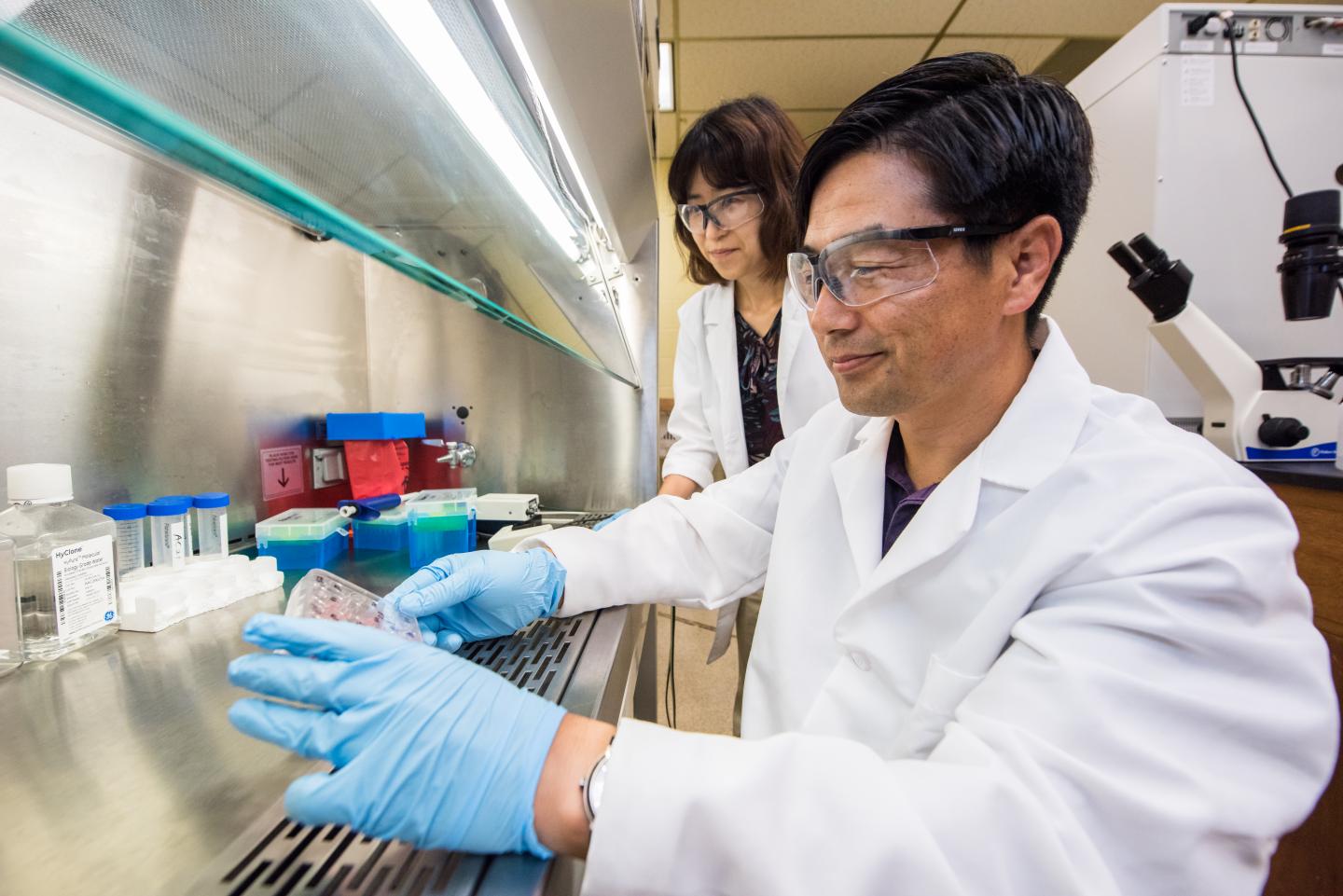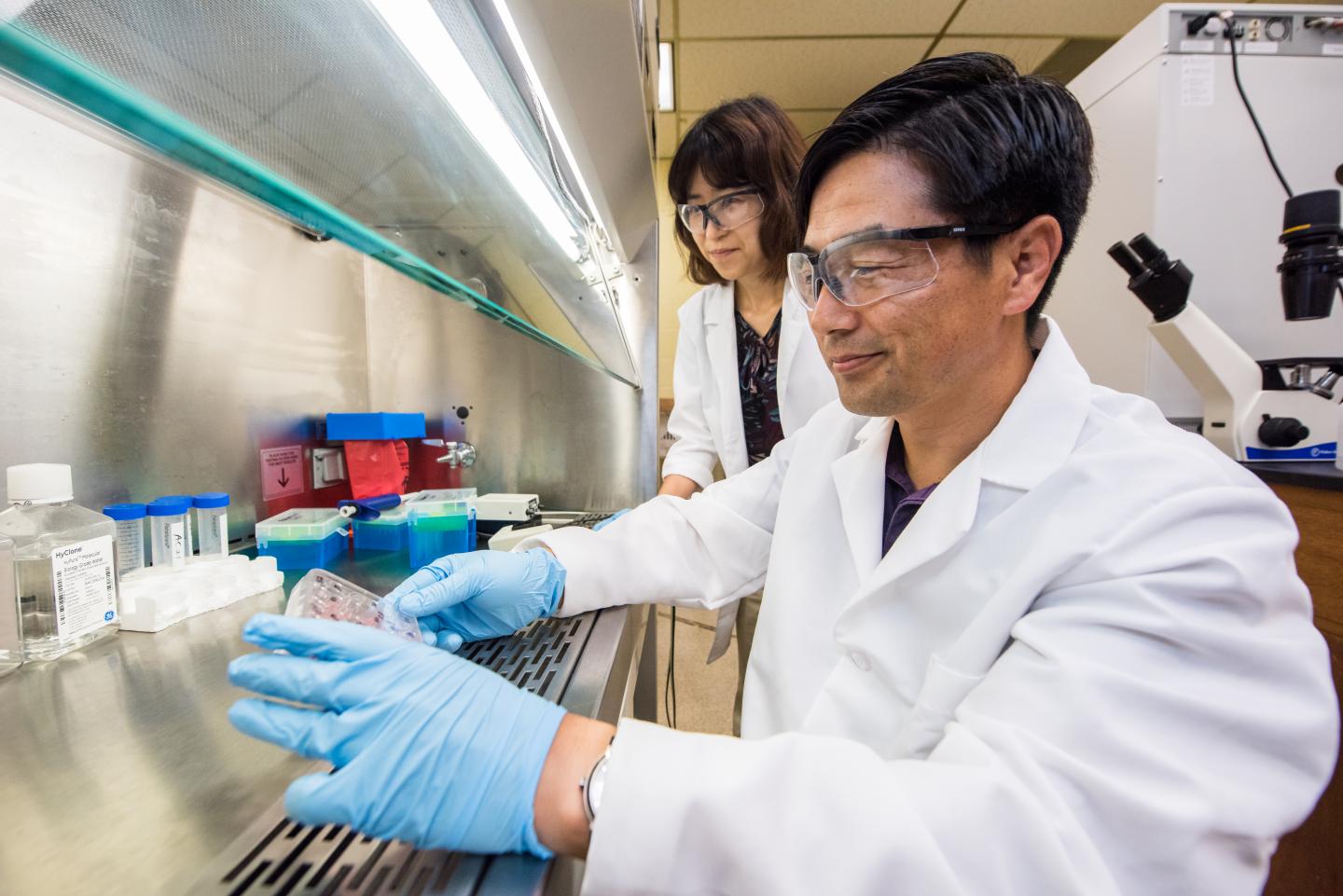
MANHATTAN, Kan. — Outbreaks of stomach flu or noroviral gastroenteritis can easily occur in crowded quarters like cruise ships, army barracks and schools, but a recent patent may lead to antiviral drugs to help travelers, students, military personnel and others avoid infections.
Researchers at Kansas State University and Wichita State University have developed broad-spectrum antivirals that may help combat the infections and spreading of common viruses, such as noroviruses and rhinoviruses, and ones that pose a bioterrorism threat.
"The field of antiviral development is a growing area for many researchers because of better understanding of virus and compound synthesis," said Kyeong-Ok Chang, Kansas State University professor of diagnostic medicine and pathobiology and lead researcher on the antivirals. "As a virologist, to find means to treat patients and combat sicknesses is a dream come true."
The work of Chang; Yunjeong Kim, associate professor of diagnostic medicine and pathobiology at Kansas State University; and William C. Groutas, a distinguished professor of chemistry at Wichita State University, earned a patent issued to the Kansas State University Research Foundation, a nonprofit corporation responsible for managing technology transfer activities at the university. The research is federally funded by the National Institutes of Health.
"Antivirals are therapeutic tools, but you could also use them as a preventative measure if you expect to come into contact or if you are recently exposed to viruses, especially if you belong to high-risk groups because of pre-existing health concerns," Kim said. "That way, when you are exposed, you can have the antiviral in your system already."
The researchers' antiviral compounds are unique because of their macrocyclic structures — spiral-shaped structures that don't break up easily in the bloodstream. Macrocyclic compounds have characteristics for good stability in the patient's bloodstream, which is a critical aspect for any good drug.
"Macrocyclic compounds are kind of a big trend in antivirals or any drug development because of their highly stable nature in the body," Chang said.
In addition to structural strength for stability in the body, the compounds need to internalize inside of target cells where viruses multiply, as nearly all antiviral substances do, to inhibit viral growth. The patented compounds inactivate the viral enzyme produced during active replication in the cells.
"Like any drug development, potential compounds need to satisfy many additional requirements, including cell safety and stability, and eventual antiviral efficacy in the body," Chang said. "That's why it takes years to develop antivirals."
The compounds still must undergo several years of testing before they may be made available to consumers.
###
The diagnostic medicine and pathobiology department is in Kansas State University's College of Veterinary Medicine.
Media Contact
Kyeong-Ok Chang
[email protected]
785-532-3849
@KStateNews
http://www.k-state.edu





